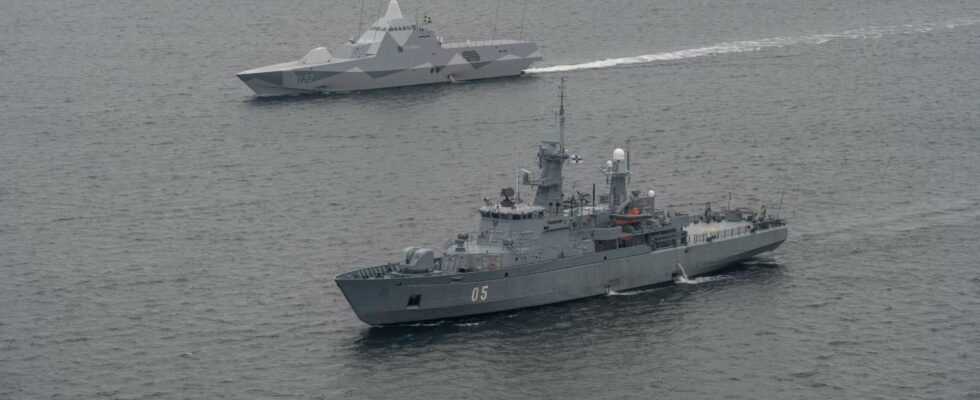Accident or intentional act? At least one submarine cable connecting Sweden to Latvia, in the Baltic Sea, was damaged on Sunday, January 26, due to “external factors” according to Riga which deployed a warship in the incident area. This follows a series of similar events in the region: several degradations targeting energy and communication infrastructure has occurred in recent months in this maritime space. They register, according to experts and political leaders, in the context of a “hybrid war” waged by Russia against Western countries.
Early Sunday morning, an optical fiber cable belonging to the National Radio and TV center in Latvia (LVRTC) connecting the Swedish island of Gotland to the Latvian city of Ventspils, was damaged. A few hours later, the Swedish prosecutor’s office announced that it had opened an investigation for “aggravated sabotage” and entered a suspected ship. “Several authorities, including the national unit of police operations, coast guards and the armed forces, participate in the investigation,” said the prosecutor in charge of the Mats Ljungqvist case, without giving more details.
“Based on current findings, we assume that the cable has been considerably damaged by external factors,” LVRTC said in a statement earlier during the day. Damage took place in Swedish territorial waters at a depth of at least 50 meters.
Riga has in the wake deployed a warship at the place of damage, specifying having identified a “suspicious ship”, the “Michalis San”, as well as two other ships, in the area. The “Michalis San” was on the way to Russia, according to maritime follow -up sites. “We have a warship that patrols the Baltic Sea constantly, day and night, and which allowed us to deploy quickly as soon as we know the damage,” said the commander of the Latvian navy, Maris Polencs , during a press conference.
A Bulgarian ship understood by Sweden
The ship understood by Sweden is a Bulgarian ship. The “Vezhen”, a boat built in 2022, was “hunted on Sunday and rerouted by the coast guard towards the territorial waters” of the Nordic country, explained this Monday at AFP Alexander Kalchev, CEO of the Navigation Company Bulgarian maritime, denying any act of sabotage.
The Swedish and Latvian heads of government communicated throughout the day on Sunday. “I was in close contact with my Latvian colleague Prime Minister Evika Silina,” said Swedish Prime Minister Ulf KrisSson on X, reporting at least one damaged cable. “Sweden, Latvia and NATO cooperate closely on this case. Sweden will bring the necessary capacities” for the needs of the survey, he added.
The country residents of the Baltic Sea strive to strengthen their defenses after the alleged sabotage of several submarine cables this fall and winter. Faced with the repeated character of these events, NATO announced in January launching a patrol mission aimed at protecting these underwater infrastructure. Plans, boats and drones will be dispatched there.
Limited consequences
Sunday, the president of the European Commission Ursula von der Leyen immediately expressed her “total solidarity” with the countries affected by the damage on the Latvian cable. “The resilience and security of our critical infrastructure is an absolute priority,” she said on the social network X.
The consequences are currently limited. “Disruptions in data transmission services” took place, noted the LVRTC. But replacement solutions have meanwhile been found, and end users will not be affected, added the center.
On December 25, the electric cable islink 2, connecting Finland to Estonia, and four other telecommunications cables had been damaged, just a few weeks after similar damage on two telecommunications cables in Swedish waters.
